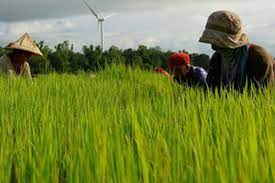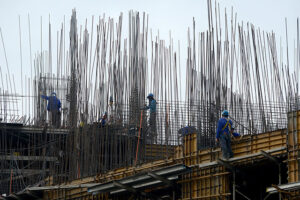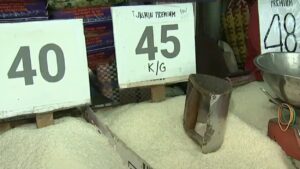
The Philippine agricultural sector experienced a modest uptick in output during the first quarter of 2024, registering a slight increase of 0.05 percent according to the latest report by the Philippine Statistics Authority (PSA). This marginal growth comes off a more robust increase of 2.1 percent in the same period the previous year, reflecting a more challenging landscape for the country’s farmers.
Diverse Performance Across Agricultural Subsectors
The overall performance of the agriculture sector was a mixed bag, with notable disparities across different subsectors. The poultry sector emerged as the standout performer, achieving a 5.9 percent increase in production. This surge was driven by higher outputs in chicken, eggs, and ducks, which collectively contributed positively to the sector’s overall growth.
Conversely, the livestock subsector faced significant setbacks, with a sharp decline of 3.6 percent. This downturn was particularly evident in hog production, which suffered notable decreases, overshadowing modest gains in dairy, carabao, and cattle outputs. These mixed results highlight ongoing challenges within the livestock industry, including issues related to feed costs, diseases, and market demand fluctuations.
The fisheries subsector also reported a decline, dropping by 1.3 percent. Key contributors to this decrease were reductions in the catch volumes of several species, including threadfin bream (bisugo), mudcrab (alimango), bali sardinella (tamban), blue crab (alimasag), and grouper (lapu-lapu). These declines reflect broader issues such as overfishing, habitat degradation, and the impacts of climate change on marine ecosystems.
Crop production, another critical component of the agriculture sector, decreased by 0.3 percent, largely due to a contraction in palay (rice) output. This reduction can be attributed to factors such as unfavorable weather conditions, pest infestations, and limited access to optimal farming inputs like fertilizers and seeds.
Economic and Strategic Implications
The overall value of agricultural production in the first quarter stood at PHP 428.99 billion, emphasizing the sector’s significant role in the Philippine economy. Despite the modest overall growth, the declines in key subsectors such as livestock and fisheries underscore the need for targeted interventions to support these areas.
Strategically, these results may prompt government agencies and industry stakeholders to reassess and possibly revamp policies related to agricultural subsidies, support services, and sustainability practices. Enhanced efforts towards modernization, improved agricultural techniques, and increased support for small-scale farmers could be crucial in reversing the negative trends observed in several subsectors.
Conclusion
As the Philippine agricultural sector navigates through these varied challenges, the slight increase in overall production in the first quarter of 2024 provides a glimmer of hope but also a clear indicator of the need for sustained efforts to bolster the resilience and productivity of the sector. Moving forward, it will be imperative for policy makers, industry leaders, and the farming community to collaborate more closely to foster an environment that can lead to more robust growth and sustainability in agriculture.





















Comments are closed for this article!